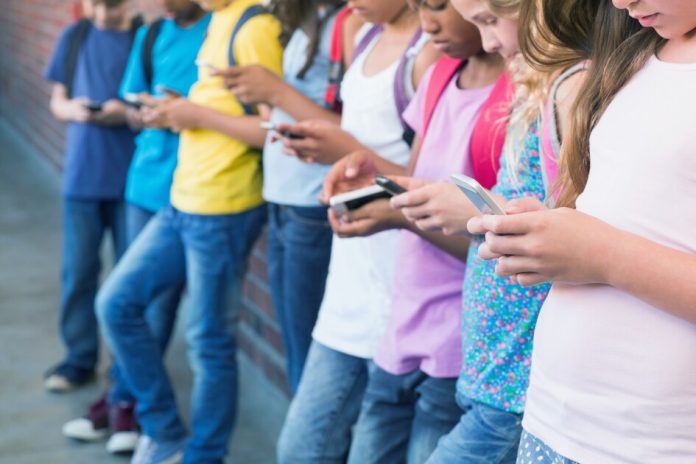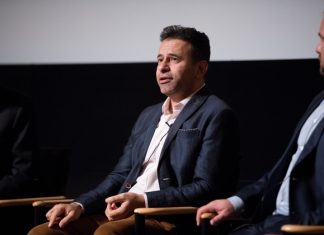The optimal age for students to get their first cellphone is between 12 and 14, according to a survey of nearly 700 educators conducted in May through July by the EdWeek Research Center.
More than half of surveyed school and district leaders and teachers—58%—pinpointed ages 12 to 14, which roughly corresponds to grades 7 through 9 in most districts. A plurality of educators—23%—pegged the best age as 13, while another 20% said age 14, and 16% picked age 12.
Nearly another quarter—22%—suggested that parents should wait until students are at least 16 years old before giving them a cellphone.
Cellphones are a huge distraction in class, and younger kids don’t really need them, educators argued. Students may use their phones to text classmates, take pictures, watch videos or even cheat in class.
“My kids did not get a cellphone until they went to high school,” one educator wrote in an open-ended response portion of the survey. “The kids have become addicted to them during and after COVID. The parents are just as addicted to their need to be in constant contact with the kids.”
“Children do not need cellphones until there is a need for parents to communicate about unknown pickup/drop-off times,” another wrote.
“I think cellphone age is a very hard thing to nail down because it is dependent on the family and the child,” wrote another. “My kids played high level athletics at an early age, which required quite a bit of travel. … We felt at about 9 they needed it for things like that. I think parents should hold off as long as they can.”
There’s no research suggesting students should get a cellphone at a particular age
So is there a recommended, research-based age for giving kids a cellphone or other mobile device?
No, said Jill Murphy, the chief content officer at Common Sense Media, a research and advocacy organization focused on youth and technology.
“There is no right age, there’s no number,” Murphy said. That can be frustrating for parents, and by extension, for educators to whom families look for guidance, she acknowledged.
“I think we’re all desperate for ‘just tell me what the right age is,’” she said. “We all want an age. We all want rules. We all want guidance.”
Families and caregivers should instead look at their child’s individual context. “The hard truth is that one 13-year-old is not the same as another 13-year-old,” Murphy said.
When asked for their advice on the subject, educators should encourage parents to consider questions like: “How [is my child] behaviorally? Are they acting out a lot? Are they really mature?
“Have [we] had real discussions about some really heavy topics? Do they have a sense of not just right and wrong, but appropriate and inappropriate? What are the trust factors that you’re struggling with as a parent with your kid?” Murphy said. “Context matters.”
The EdWeek Research Center survey of 694 educators was conducted from May 28 to July 1 of this year.





